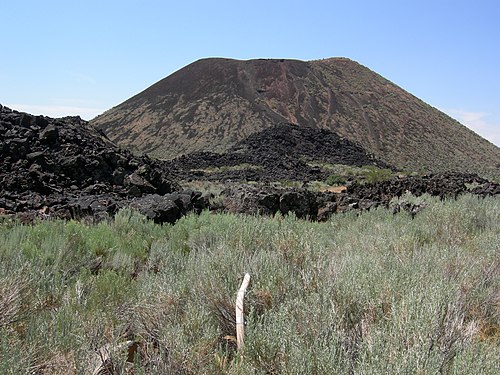Scorianoun
The slag or dross that remains after the smelting of metal from an ore.
Scorianoun
(geology) Rough masses of rock formed by solidified lava, and which can be found around a volcano's crater.
Scorianoun
The recrement of metals in fusion, or the slag rejected after the reduction of metallic ores; dross.
Scorianoun
Cellular slaggy lava; volcanic cinders.
Scorianoun
the scum formed by oxidation at the surface of molten metals
Scoria
Scoria is a highly vesicular, dark-colored volcanic rock that may or may not contain crystals (phenocrysts). It is typically dark in color (generally dark brown, black or purplish red), and basaltic or andesitic in composition.
Pumicenoun
A light, porous type of pyroclastic igneous rock, formed during explosive volcanic eruptions when liquid lava is ejected into the air as a froth containing masses of gas bubbles. As the lava solidifies, the bubbles are frozen into the rock.
Pumiceverb
(transitive) To abrade or roughen with pumice.
Pumicenoun
A very light porous volcanic scoria, usually of a gray color, the pores of which are capillary and parallel, giving it a fibrous structure. It is supposed to be produced by the disengagement of watery vapor without liquid or plastic lava. It is much used, esp. in the form of powder, for smoothing and polishing. Called also pumice stone.
Pumicenoun
a light glass formed on the surface of some lavas; used as an abrasive
Pumice
Pumice ( ), called pumicite in its powdered or dust form, is a volcanic rock that consists of highly vesicular rough textured volcanic glass, which may or may not contain crystals. It is typically light colored.
















